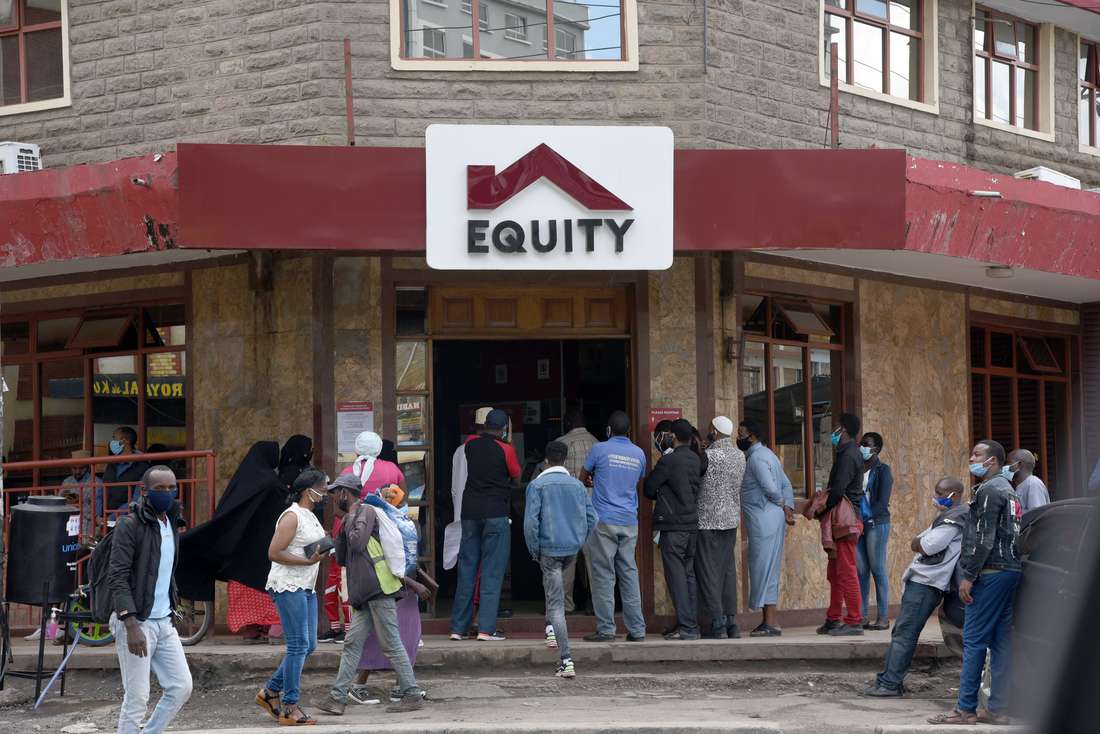Equity Bank Shields Long-Time Borrowers from Soaring Interest Rates

In the ever-evolving landscape of financial markets, Equity Group, under the astute leadership of Managing Director and CEO Dr. James Mwangi, has unveiled a strategic move that distinguishes it from its peers in Kenya’s banking sector. Amidst the transition to a comprehensive risk-based pricing system, Equity Bank has taken a unique stance by preserving the interest rates of borrowers who availed loans before 2019. In this article, we delve into Equity’s forward-thinking approach and how it impacts both borrowers and the bank itself.
The Context: Embracing Risk-Based Pricing
The transition to risk-based pricing was initiated by Equity Bank at the beginning of the year, signifying its commitment to a more dynamic and responsive lending framework. Under this system, the interest rates for loans are determined based on individual borrower risk profiles. This move made Equity one of the first banks in Kenya to gain approval from the Central Bank of Kenya (CBK) for such a progressive pricing model.
Shielding the Past: A Fair Approach
One of the most notable aspects of Equity’s approach is its treatment of pre-existing loan facilities. Loans acquired prior to 2019 and consumer loans disbursed before January of the current year have been spared from the changes in interest terms that newer borrowers are experiencing. This compassionate approach recognizes that these borrowers entered into their agreements under different economic circumstances, and as such, their interest rates remain unaffected.
CEO Insight: A Sensible Stance
Equity’s Chief Executive, James Mwangi, explained the rationale behind this decision, stating, “Any loan prior to 2019 was not subject to the review. We also didn’t review consumer loans because we knew disposable incomes had been depleted. Consumers who have taken loans after January are paying for their risk.” This thoughtful perspective ensures that borrowers are not burdened with the repercussions of changes they could not foresee.
Navigating the New Terrain
Equity Bank set its internal benchmark lending rate at 12.5 percent, with a maximum margin of 8.5 percent. While the bank had previously paused adjustments to interest rates due to the challenging macroeconomic environment and its impact on borrowers, the shift in strategy during the first half of 2023 has allowed the bank to safeguard against potential macroeconomic shocks. This strategic positioning encompasses considerations of interest rates, inflation, and exchange rate fluctuations, all of which could have adversely affected borrowers if not properly managed.
Industry Trends: Following a Progressive Path
As of now, 33 lenders have secured CBK’s approval to implement risk-based pricing, but the timing and extent of its application vary among them. This reflects the industry’s recognition of the need for a more nuanced approach to lending, which aligns with the individual financial circumstances of borrowers.
Impressive Growth and Financial Resilience
Equity Bank’s commitment to sound financial practices is further exemplified by its impressive performance. In the first six months of the year ending in June, the bank’s customer loan book surged by an impressive 26 percent, reaching Sh817.2 billion from Sh650.6 billion. This growth in loan portfolio was bolstered by higher interest rates on select credit facilities.
Targeted Lending: Supporting Trade and Households
Equity Bank strategically allocates the bulk of its loans to support trade and households, aligning with its asset distribution disclosure. This approach not only benefits the bank but also contributes to the broader economic growth and stability of the region.
In conclusion, Equity Group’s approach to sparing long-time borrowers from higher interest rates is not only a strategic move but also a testament to its commitment to fair and compassionate lending practices. By acknowledging the unique circumstances of these borrowers and implementing risk-based pricing sensibly, Equity Bank sets a remarkable example for the banking industry in Kenya and beyond.












